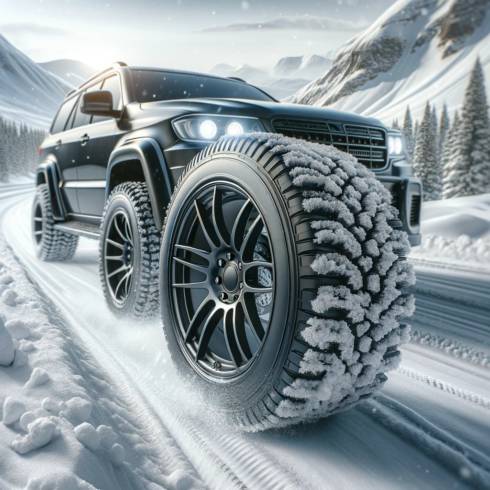Mar 20, 2024

Falken Snow Tires: Cutting Through the Winter Hype
Falken tires have carved a niche for themselves in the market, offering a balance between affordability and performance. But how do their snow tires stack up? Let’s dive into the two most popular Falken winter options: the Eurowinter HS01 and the Eurowinter HS449.
Falken Eurowinter HS01: Budget-Friendly Winter Warrior
The Eurowinter HS01 shines with its impressive grip in snow and ice. Reviewers laud its wet performance and resistance to hydroplaning. On the flip side, some users mention a longer braking distance and a less-than-sharp steering response. Noises at higher speeds are also reported by a few.
Here’s a breakdown of the Eurowinter HS01:
Pros: Excellent snow and ice traction, good wet performance, affordable
Cons: Longer braking distances, less responsive steering, potential road noise
Falken Eurowinter HS449: All-rounder for Various Conditions
The Eurowinter HS449 caters to drivers who face a mix of wintery conditions. It performs well in wet snow and on slush. Many users praise its handling and durability. However, comfort might be compromised, with some reviews mentioning higher road noise. Additionally, opinions on pure snow and ice performance are more divided.
Eurowinter HS449 in a nutshell:
Pros: Good all-around winter performance, handles wet snow and slush well, durable
Cons: Can be noisy, mixed reviews on pure snow and ice grip
The Verdict: Finding the Right Falken Snow Tire
Both Falken tires offer dependable winter performance at attractive prices. The Eurowinter HS01 excels in snowy and icy conditions, while the HS449 is a good option for drivers encountering a variety of winter road conditions.
Here are some additional factors to consider:
Climate: If you face extreme snow and ice, the HS01 might be a better choice.
Noise sensitivity: If road noise bothers you, research quieter winter tire options.
Driving style: Spirited drivers might prefer the sharper handling of other winter tires.
Remember: Reading reviews is a great way to get a sense of real-world performance, but it’s not a substitute for professional advice. Always consult a tire specialist to ensure you get the right winter tires for your vehicle and driving needs.
